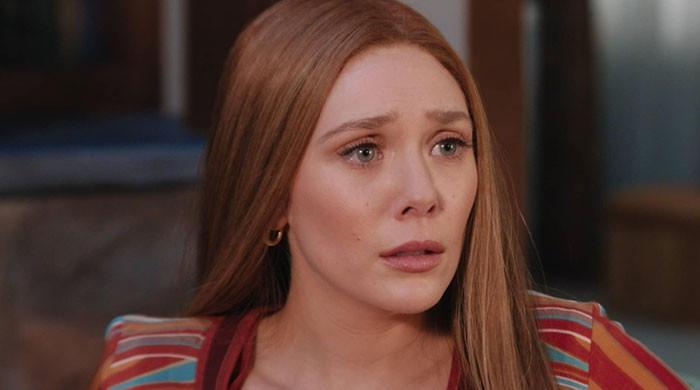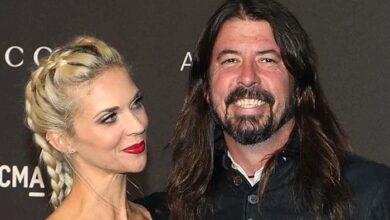Marvel Star Elizabeth Olsen Blasts Critics for Destroying MCU’s Legacy

The Marvel Cinematic Universe (MCU) continues to stir debate among audiences and critics alike, highlighting the complex relationship between box office success and critical reception. Despite facing criticism, many of its stars remain vocal supporters, emphasizing its significance in contemporary entertainment.
Elizabeth Olsen, renowned for her portrayal of Scarlet Witch, recently voiced her opinions about the franchise, asserting that Marvel movies are primarily meant for fans rather than critics. During her appearance at the Hamptons International Film Festival, she made it clear that the core audience for these films is the fans who passionately follow the stories and characters.
Her comments echo a long-standing tradition in Hollywood where blockbuster franchises often prioritize audience engagement over critical accolades. Olsen’s stance underscores her belief that the true measure of a Marvel film’s success lies in its popularity among viewers, not in critical reviews.
Interestingly, Olsen is not alone in her support for the Marvel franchise. Co-star Sebastian Stan, who plays Bucky Barnes, has also expressed admiration for the studio’s creative efforts. Stan highlighted that the MCU is a project filled with heart and thought, emphasizing the unique value it brings to the modern cinematic landscape.
However, the reputation of Marvel movies has been challenged by critiques labeled as dismissive and dismissive comments from some industry veterans. The renowned filmmaker Martin Scorsese notably declared that Marvel films are “not cinema,” comparing them to theme parks and suggesting they lack the emotional and psychological depth found in traditional films.
Scorsese’s critique sparked widespread discussion, with many defending the franchise’s cultural significance and commercial success. He argued that Marvel movies are designed more for spectacle than for conveying human experiences, a view that has divided opinion among cinephiles and industry insiders.
Sebastian Stan responded to such criticisms by praising the studio’s dedication and the genuine emotion embedded in its productions. He stated that Marvel movies represent a labor of love, with actors and filmmakers pouring their hearts into each project, despite the criticism they sometimes attract.
Furthermore, Stan emphasized that the absence of Marvel would create a significant void in the entertainment industry. His comments urge critics to consider the passionate fanbase and the innovative storytelling underpinning the franchise before dismissing it outright.
The debate extends into the broader context of what constitutes art in cinema. Critics like Scorsese argue for films that explore the depths of human experience, while others see value in the spectacle and entertainment that franchises like Marvel provide.
Read More: Why Lucy Fallon Refuses to Leave Coronation Street As Fans Stunned by Her Bold Decision
Despite differing opinions, the undeniable fact remains that Marvel continues to dominate box offices worldwide, drawing massive audiences with its interconnected stories and dynamic characters. The franchise’s ability to sustain interest over years signifies its importance in contemporary pop culture.
In response to the criticism, Marvel’s creators and actors maintain their focus on delivering entertaining and impactful stories for their fans. This approach aligns with the idea that films serve different purposes—some to invoke deep emotional reflection, others to provide escapism and joy.
The ongoing conversation about Marvel’s place in cinema reflects larger questions about artistic merit and commercial success. It challenges viewers and critics to reconsider their definitions of quality and purpose in filmmaking.
Ultimately, the support from stars like Elizabeth Olsen and Sebastian Stan underscores a shared belief in the franchise’s value, regardless of critical standings. Their perspectives highlight the importance of respecting diverse tastes and recognizing the true essence of audience engagement.
The Marvel saga remains a testament to the power of fandom and storytelling. Its success demonstrates that films can achieve great cultural significance even if they don’t conform to traditional notions of ‘cinema’ as defined by some industry veterans.
As the MCU continues to expand, it will likely face continued scrutiny, but it also proves time and again that entertaining millions is a worthy goal. The debate itself enriches the conversation about what movies truly mean in our modern society.
In conclusion, Elizabeth Olsen’s stance, alongside comments from Sebastian Stan and critics like Scorsese, illustrates the spectrum of opinions about Marvel’s role in the cinematic universe. This discourse underscores that films can be both commercially successful and culturally significant, regardless of critical reception.






